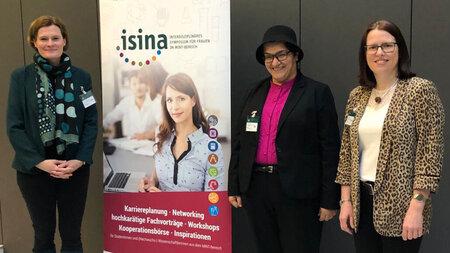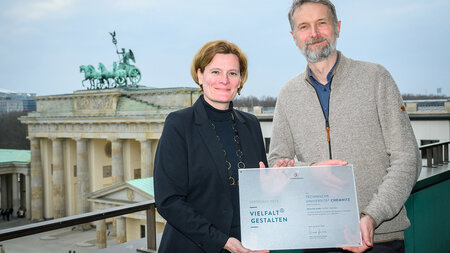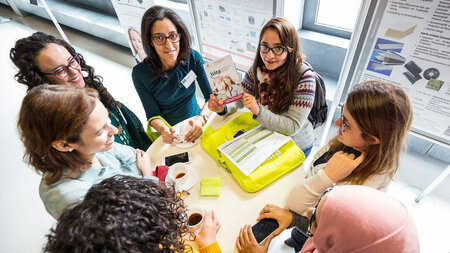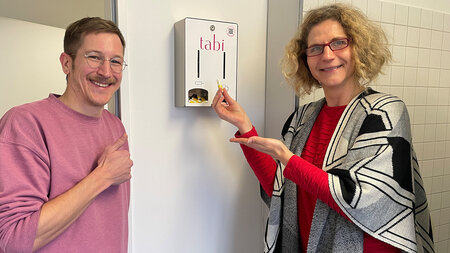Workshops
12.45 pm to 4.00 pm
W1: Selfmarketing and Networking I Dr. Alexander Egeling
Unfortunately, it is often not enough to simply do a good job. In an increasingly confusing world, you can only get important information as well as cooperation and job offers if you are known and net-worked. This does not mean that you have to chum up and impose yourself, but that you should do something to be noticed. This ranges from everyday behavior in the workplace, to attending conferences and trade fairs, to promoting yourself online and offline. This course therefore aims to teach the basics of networking and self-marketing and give participants the chance to think about their own strategies and priorities. In addition to an overview of the topic, some quick wins will also be presented that can be used to score points.
Specifically, the following topics are addressed:
- The basics of self-marketing and networking
- What do I want to stand for? My strengths and my goals
- How to be noticed offline and online
- Effective communication and elevator pitches
W2: Design Thinking Workshop - neue Lösungsräume systematisch und kreativ entwickeln I Dr. Martin Sterzel (Saxeed)
In einer Zeit der Ungewissheit gewinnen agile Lösungsentwicklungskompetenzen an Bedeutung. Durch den Einsatz von Design Thinking erkunden wir komplexe Probleme und entwickeln iterativ Lösungsmöglichkeiten, die die Aspekte Erwünschtheit, Machbarkeit und Tragfähigkeit vereinen. Innerhalb interdisziplinärer Teams wird ein Verständnis für eine vorgegebene Problemstellung erarbeitet, gefolgt von der Entwicklung erster erlebbarer Lösungsideen. Ziel des Workshops ist es, den Design Thinking Prozess und seine Phasen kennenzulernen und erstmals anzuwenden.
12.45 pm to 4.00 pm
W3: Storytelling in der Wissenschaft | Tina Schwarz (Saxeed)
Storytelling in der Wissenschaft – So mitreißend kann Forschung sein: Wie kühle Fakten – lebendig und einprägsam erzählt werden können.
Storytelling ist eine der ältesten und erfolgreichsten Arten der Kommunikation. Der Workshop Storytelling in der Wissenschaft basiert auf dem Prinzip, Forschungsprojekte in Geschichten einzubetten, die Leser:innen persönlich berühren, Bilder im Kopf erzeugen und somit besser in Erinnerung bleiben, als eine Liste von Fakten. Ziel ist es die Forschungsfrage so anschaulich zu erzählen, dass sie das Interesse des Gegenübers weckt und gleichzeitig das Verständnis verbessert.
W4: The Voice as an Instrument for Scientists | Julia Baumeister
For scientists, the voice is perhaps the most important means of communication and part of their daily work. Nevertheless, most frequent speakers know very little about how the voice works and how to protect and train it. However, incorrect vocal strain can lead to hoarseness, pain and sometimes loss of voice. In this practical workshop, participants learn how to use their own voice in a way that conserves resources, find out the parameters for healthy voice use and learn how to strengthen their own voice and keep it healthy through practical exercises. The focus here is on the functional aspect of the voice on the one hand and the connection between body, emotion and voice on the other. The latter plays a decisive role, especially in stressful situations. Last but not least, the fun of using the human voice and its possibilities should also be experienced!
W5: Designing Effective Academic Posters | Birgit Lukowski
Poster sessions are an integral part of almost every scientific conference. Their purpose is to highlight research results, visualize them, and stimulate discussion. To draw your audience in, you need a crystal-clear message, a text format optimized for the best possible readability and well-chosen graphics. And above all, you need to think well through how to organize your research content on the required paper or e-poster format. Basic rules of graphic design and layout technique will help you to present your research visually well organized and compelling. The course will equip you with both the concepts and the practical design skills and provides the possibility to put directly into practice what you have learned as well as to get useful feedback from group and trainer.






